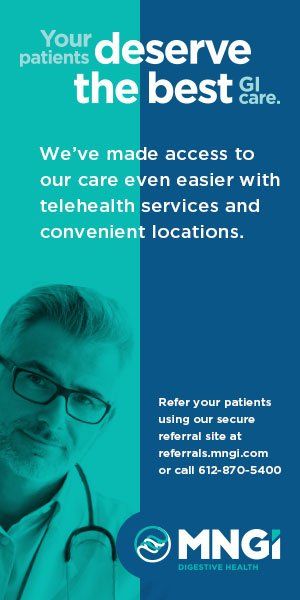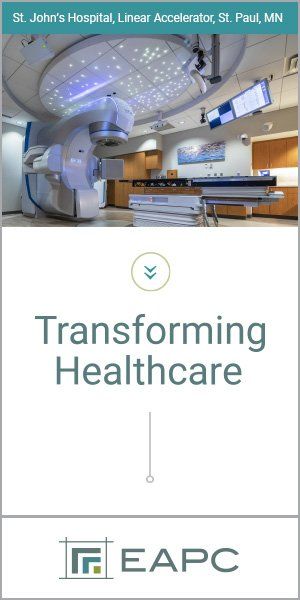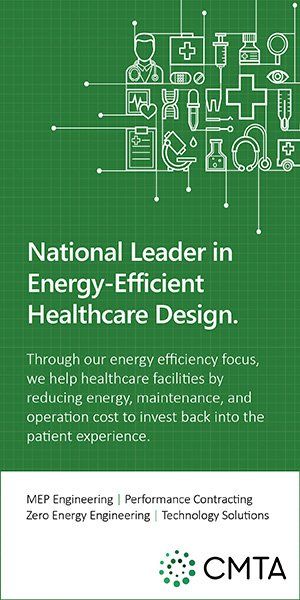Interview
Defending the Humanity of Millions
Ellie Wilson is the Executive Director of AuSM
Please tell us about the Autism Society of Minnesota.
The Autism Society of Minnesota (AuSM) was founded in 1971 by a group of passionate parents whose goal was to seek greater understanding and better school supports for their children with autism. A half-century later, we continue to improve the lives of people with autism, but with an expanded focus along the entire lifespan, from birth through retirement. We do this by creating connections and empowering everyone in the autism community with the resources needed to live fully. We work to enhance the lives of all who are part of the Minnesota autism community, with a fundamental commitment to advocacy, education, support, collaboration and community building. Whether you are the parent of a child with a new diagnosis, an adult with autism who needs guidance, an educator or health care professional who supports people with autism or a company that wants to learn more about the talents of people with autism, AuSM offers the resources you need to help you accomplish your goals. We provide a place where everyone can learn, access services and develop skills for navigating what can be challenging emotions and complex information. AuSM is a neurodiversity affirming organization. We affirm that the diversity of minds and experiences is a strength of humans rather than a deficit. Services include membership, workshops, the Minnesota autism conference, AuSM Skillshops, individualized consultation, specially tailored summer camps for youth and adults with autism, interest-based social skills classes with community partners, counseling and consulting services, support groups, autism direct-support certification training, sensory-friendly events, advocacy, information and resources and customized autism training. Our members throughout the state of Minnesota and the upper Midwest include a diverse representation of autistic individuals, families, educators, caregivers and professionals who support individuals with autism spectrum disorders (ASD).
U.S. Secretary of Health and Human Services Robert F. Kennedy Jr. recently made a series of very questionable public comments about autism. What would you like people to know about this?
The Autism Society of Minnesota (AuSM) unequivocally rejects Secretary Kennedy’s characterization of autism as a “preventable disease” caused by environmental toxins and his framing of autistic people as burdens to their families and society. His statements were scientifically unfounded, deeply stigmatizing and harmful to everyone in the autism community. Autism is not a disease. It is not an epidemic. It is not a tragedy.
AuSM, in the good company of many other advocacy organizations, recognizes that the persistent inadequacy of educational, medical and social service investments can lead to a systematic under-service of families affected by autism. This often leaves them under-resourced, isolated and chronically overwhelmed. It disproportionately affects autistic people with complex and co-occurring disability. Tying these challenges to an inherent tragedy, however, is misleading, ableist and harmful to both autistic people and caregivers alike.
Autism is a complex, lifelong neurodevelopmental disability shaped by genetic, biological and environmental factors. Referring to autism as something to be eradicated is not only scientifically inaccurate—it is dangerous. It dehumanizes autistic people and fuels stigma that contributes to discrimination, systemic neglect and even violence against people with disabilities.
He said many things that besides being unfounded, demonstrated qualities of eugenics. How do you respond to this?
When Secretary Kennedy says, “These are kids who will never write a poem… never use a toilet unassisted,” he denies the diversity, dignity and value of the autistic community. Autistic people do write poems. They do fall in love, pay taxes, build careers and contribute meaningfully to society. Some may need lifelong support, but are no less worthy of joy, autonomy or belonging. To imply otherwise is to erase the humanity of millions.
There are multiple times throughout history, nationally and globally, in which disabled people have been targeted for institutionalization, sterilization or death. The generational trauma caused by these actions is ever-present and is highly recognized by the disability justice movement.
Autistic people are—individually and collectively—worthy and important.
Please discuss the issues around rising numbers of autism diagnoses.
In light of newly released CDC data estimating autism prevalence at 1 in 31 8-year-olds nationally—and 1 in 28 in Minnesota—it is critical that media, policymakers and the public understand that these numbers reflect progress in identification, not a cause for panic. Increases in prevalence rates are linked to improved awareness, more inclusive diagnostic criteria and expanded access to evaluation, especially in historically underserved communities.
Upon close review of CDC prevalence data nationally and locally, it is clear that recent prevalence is much more inclusive of diverse autistic presentation relative to previous decades across racial, ethnic, gender and age groups, which indicates an improvement in populational access to evaluation and accurate diagnosis.
Early diagnosis creates critical opportunities for individuals to reach their best and fullest potential. Please share some examples of this.
Diagnosis of autism can be made at almost any age, and many people benefit from diagnosis whether or not they need or choose to access protections and services for autism. That being said, consistent evidence shows that access to early supports and services predict the greatest long-term outcomes for autistic children and adults. Common early intervention services include speech and communication support, sensory challenge mitigation, emotional regulation strategies, social development and self-advocacy skills, all of which are best integrated at the earliest age possible—just like any type of learning or skill development. Beyond traditional medical and educational outcomes, however, access to early diagnosis also best prepares parents, siblings, and care providers to understand their autistic loved ones, better equipping them to accommodate their family cultures, to improve their systems advocacy and to battle misinformation and stigma. This has clear impact on the mental health of autistic children as they transition into adulthood, form identity and learn to relate to the world around them.
The 30th Annual Minnesota Autism Conference was held recently. Please share some of what was said.
Each year, AuSM gathers together autistic adults, parents, educators and professionals to share, review and apply best practices in neurodiversity support. Although autism is no longer a low prevalence disorder, there are few opportunities to focus a deep-dive into the practices and paradigms that address autistic need, and the AuSM conference has a long legacy of providing this progressive, interdisciplinary space.
The 30th annual conference, held in April 2025 coincided, by sick luck, almost directly with the release of the new CDC data and the comments from current HHS leader RFK Jr. Naturally, the conference goers were abuzz with disturbance, fear and disbelief about the harsh comments coming from the federal office that is designed to support our community.
We know there are powers that be in our country who are spewing dangerously ignorant, harmful and insulting rhetoric about us—about our beloveds. It’s ableist, and it’s wrong. The truth is: autistic people are—individually and collectively—worthy and important. They deserve safety, dignity, support and joy. AuSM stands with the Autism Society of America and our national partners in calling for public health policy rooted in rigorous, peer-reviewed science. The persistent promotion of long-debunked theories—such as the false link between vaccines and autism—undermines public trust, diverts resources and places real lives at risk. We have deep concern about proposed HHS restructurings and budget cuts that threaten the Administration for Community Living, Medicaid and the civil rights of students with disabilities. These policies, paired with inflammatory rhetoric, paint a disturbing picture of the erosion of the civil rights of people with disabilities.
What are some of the things that can be done from all levels of government to address these concerns?
Perhaps the most important thing is for elected and appointed officials to understand the basic concepts of leadership. They must understand the power and privilege of their position and use it responsibly. For starters, this means telling the truth, which may entail education and study on their part. It most certainly also entails building bridges and creating community. For starters, this means not using ableist, alarmist, racist or dehumanizing language. As it applies to our community it includes investing in evidence-based research that centers on autistic voices. It means prioritizing access to early diagnosis, inclusive education and community-based services. It is incumbent on leadership to safeguard the rights and futures of all disabled Americans. Autism is not a problem to be solved, it is a disability. Like all people with disabilities, the autism community deserves to be supported and included. And we will continue to defend ourselves from hate — fiercely, proudly, and with love.
Of course, this advocacy is not hypothetical. In the same arc of the horrible comments provided by RFK Jr., federal leadership is moving to dismantle the Department of Education, Medicaid benefits, Governors Councils on Developmental Disabilities, University Centers of Excellence on Developmental Disabilities, Administrations for Community Living, and more. These services and centers are the very axis on which disability advocacy, equity and justice are systematically advanced, and their dissolution or defunding is extremely likely to have life or death effects on autistic and disabled people across the country.
Why is such a seeming disregard for science coming from HHS?
We are especially troubled by the framing of this recently articulated initiative as a search for a “cause and cure” for autism. Statements like these contribute to harmful narratives suggesting that autism is a problem to be solved, rather than a natural variation in human neurodiversity. Many autistic people do not want to be “cured”—they want to be understood, accepted and supported. Though we welcome investments in better support for all autistic individuals, especially those with the highest support needs, the message that autism must be eradicated is deeply hurtful. Furthermore, there is absolutely zero evidence of a connection between vaccines and autism. There is, however, extensive evidence of a connection between vaccines and how they can save lives. In the midst of a growing measles outbreak, for example, preaching against vaccines is not responsible leadership.
Though it has been subsequently “walked back,” Secretary Kennedy recently proposed an Autism Registry. What are your thoughts on this?
We are deeply concerned over the recent announcement by Health and Human Services Secretary Robert F. Kennedy Jr. regarding the creation of a federal autism registry. While we strongly support rigorous, ethical and science-based research to better understand autism, the methods proposed in this initiative raise serious ethical, legal and practical concerns that cannot be ignored. According to public reports, the National Institutes of Health (NIH) planned to collect and compile identifiable health data from a wide range of private and public sources, including hospitals, pharmacies and personal health devices such as smartwatches. The lack of transparency about how this registry might function raises alarm. Key questions remain unanswered: How will autistic individuals be identified? Will their data be de-identified? What confidentiality protections will be in place? Will individuals receive any notification or have an opportunity to opt out? Without clear answers to these fundamental questions, the risk for misuse of personal information is high.
How might this kind of initiative be at odds with informed consent and ethical oversight?
One of our most pressing concerns is the absence of informed consent in this potential data collection effort. Unlike existing research initiatives such as the CDC’s Autism and Developmental Disabilities Monitoring (ADDM) Network, which uses de-identified data and is subject to rigorous Institutional Review Board (IRB) oversight, this proposed registry appears to involve identifiable, personal health information gathered without direct consent. The dismantling of the Office for Human Research Protections (OHRP), which previously upheld ethical standards for human subjects research, only heightens the risk that this initiative could move forward without adequate accountability or oversight.
Research involving vulnerable populations—including autistic individuals, children and adults under guardianship—demands the highest ethical standards. Collecting extensive personal data from individuals without directly seeking their consent, and without clear parameters on who can access this information and how it will be used, presents an alarming ethical dilemma. For many in our community, this kind of surveillance is reminiscent of past harms against disabled people and it risks creating further isolation and distrust, and could meaningfully drive people away from the formal diagnosis and service supports they need.
Would the registry be exempt from HIPPA protection?
The Health Insurance Portability and Accountability Act (HIPAA) provides important protections for medical privacy, but it does not restrict how the government itself may use these data—especially when framed as a public health initiative. Americans are also protected under the Constitution’s implied right to privacy, however, and any large-scale government collection of identifiable health information must be weighed carefully against that right. Our community has made clear that privacy matters. Many autistic individuals choose not to disclose their diagnosis publicly out of concern for stigma, discrimination and surveillance. A federal registry—particularly one collecting identifiable data from multiple sources—will undoubtedly deter some individuals and families from seeking diagnosis or support, out of fear of being tracked or profiled. This outcome is directly at odds with long-standing advocacy efforts encouraging earlier identification, greater acceptance, and access to services.
Ellie Wilson, is the Executive Director of AuSM.
MORE STORIES IN THIS ISSUE
cover story one
Broadening the Lens: Improving health data measurement
By Liz Cinqueonce, MBA, and Kate Hust, MD, MPH
cover story two
Safeguarding Surgery Standards: The legislative role in scope of practice issues
















